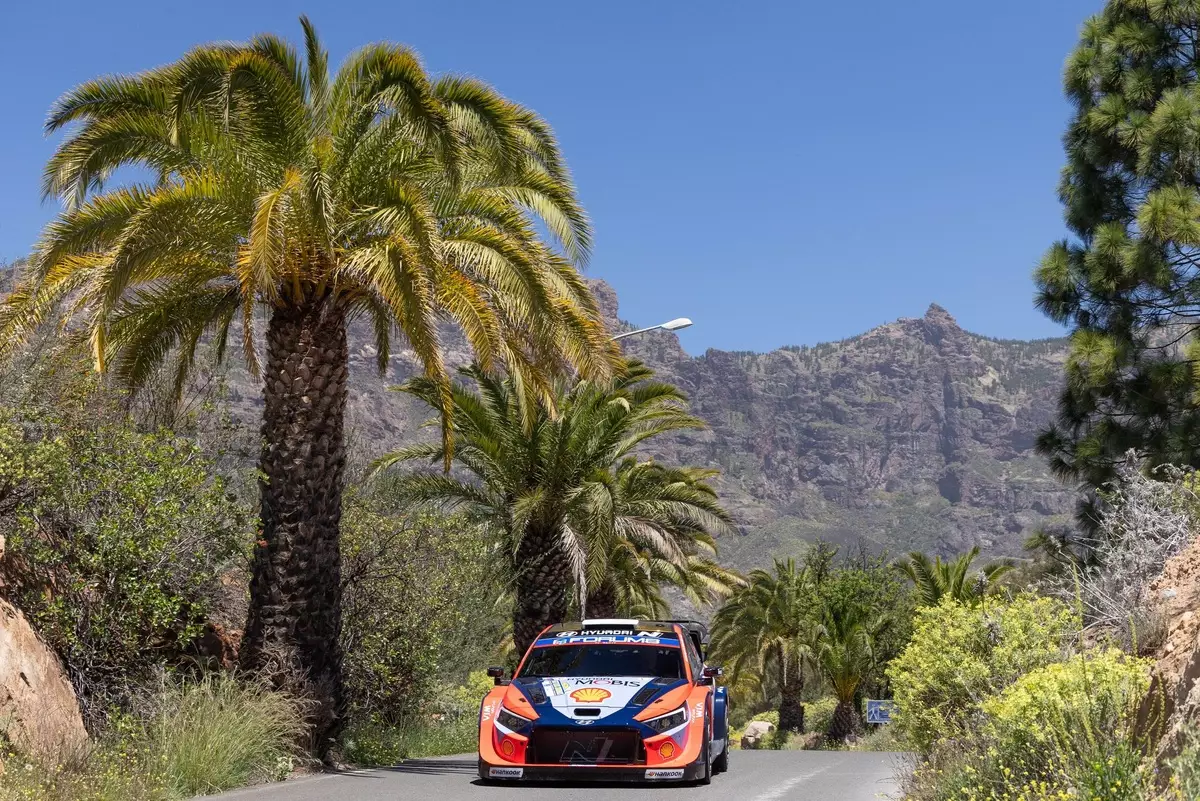In the fiercely competitive world of rally racing, preparation is often the difference between victory and defeat. This lesson was starkly illuminated during the recent Rally Islas Canarias, where Hyundai Motorsport faced a daunting challenge against their World Rally Championship rivals, Toyota. After a humbling defeat, Hyundai’s lack of preparation for the unique demands of a pure asphalt rally became evident. As the team grapples with the implications of this setback, it underscores the importance of meticulous planning and adaptability in high-stakes racing.
Hyundai’s confidence heading into the event was buoyed by Thierry Neuville’s previous performance on similar terrain at Rally Sierra Morena. Yet, the transition from Spain to the Canary Islands exposed flaws in the team’s strategy and car setup. The decision regarding differential settings—a critical component in rally car handling—reflected a significant oversight that hampered performance. By the time they realized the car’s configuration was flawed, it was too late to make the necessary adjustments. This necessitated a disappointing shift in focus from competition to mere data collection, as the team was forced to treat the latter stages of the rally as a testing ground.
The Toyota Juggernaut and Lessons Learned
Toyota’s commanding 1-2-3-4 finish at the rally was a clear highlight that accentuated Hyundai’s struggles. Rallying is not simply about speed; it is also fundamentally about execution and precision. Kalle Rovanperä’s performance exemplified how critical attention to detail and preparation can lead to dominance. For Hyundai, this experience should serve as a wake-up call that the road to success requires continuous improvement, especially when competing against such a well-oiled machine.
Ott Tanak’s candid remarks post-race revealed his disappointment, but also provided a glimpse into the complex nature of rallying. He articulated, “Clearly we were not well prepared for this rally,” emphasizing that the depth of the issues extended beyond temporary fixes. This calls into question the team’s development process and whether they can pivot effectively in such a competitive environment. The admission that substantial changes may be required for the i20 N Rally1 to match Toyota’s performance raises critical considerations for future strategies.
Insights from the Team Dynamics
Amidst the struggles, Adrien Fourmaux’s emergence as the fastest Hyundai driver, despite finishing fifth and trailing the leader by over two minutes, showcases the potential within the team. In the harsh light of competition, internal dynamics can often become strained. However, Fourmaux’s ability to find positives in an otherwise discouraging situation illustrates the critical importance of team morale and the pursuit of excellence, even in adversity.
Fourmaux’s remarks, expressing optimism about Hyundai’s ability to correct course, suggest a depth of resilience within the team. “I’m confident Hyundai is not a team that doesn’t react when something goes wrong,” he stated, reflecting an ethos that many teams could aspire to. For rally teams, like any athletes facing difficulty, the real measure of resolve lies in their capacity to learn and adapt.
The Road Ahead: A Call for Evolution
As Hyundai evaluates its performance in the Canary Islands, the lessons gleaned must translate into actionable changes. With another asphalt rally, the Central European Rally, on the horizon, the pressure to recalibrate and refine their approach intensifies. Adapting to the unique challenges posed by each event will be crucial for future success.
The implications of lessons learned are not merely about adjusting technical specifications, but rather fostering an organizational culture that embraces innovation and responsiveness. As Hyundai strives to reclaim its competitive edge, the rally community will be watching closely. The rallying world thrives on the unexpected, and how Hyundai responds to this challenge could very well define their trajectory for the remainder of the season. The potential for transformation is vast, and with it, the hope for a stronger showing as the championship unfolds.

